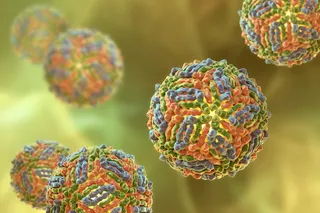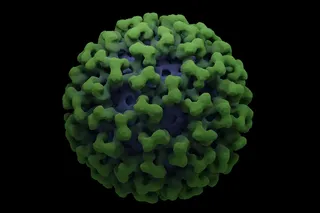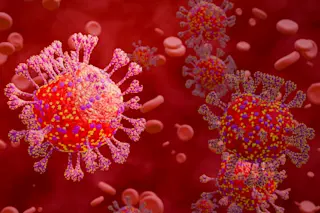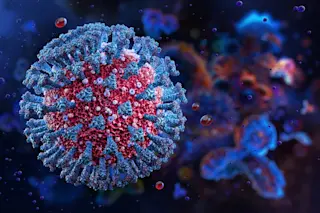The chicken industry has been remarkably effective in breeding efficient egg-layers and plump-breasted broilers, but a new study says that focus has created a chicken population that lacks genetic diversity, leaving the birds more vulnerable to diseases. The study found that industrial chickens have lost about half of the genetic variations once found in the wild chicken populations, and some have lost 90 percent of those genes.
This means most of the world's chickens lack characteristics that evolved when they lived in the wild, and may be useful again to help them face stress and disease as livestock. Scientists want to breed DNA for traits such as disease resistance, or "animal well-being", back into commercial birds without introducing undesirable traits at the same time [New Scientist].
Researchers say the biggest concern is that if commerical chickens are nearly identical genetically they'll all be susceptible to the same infectious diseases, and ...













